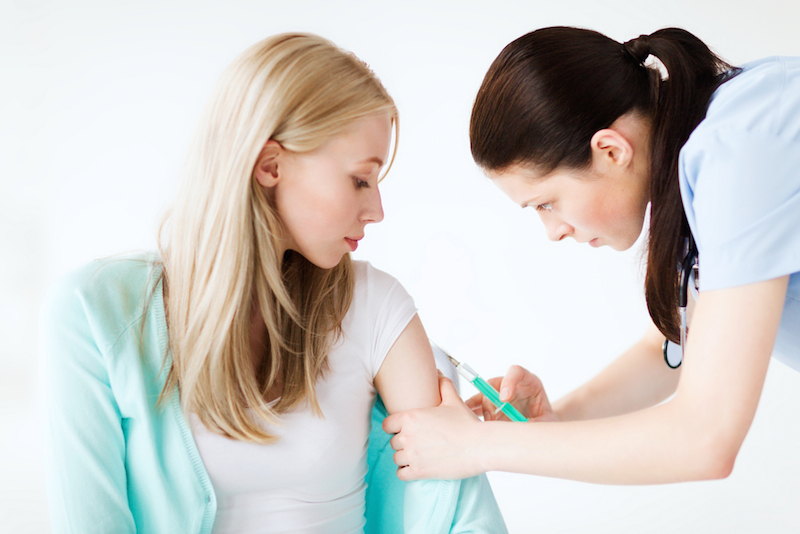Many Americans Don't Get Recommended Vaccines Before Travel

Americans who travel abroad often do not receive the recommended vaccines that would protect them from certain illnesses, new research suggests.
One study of Americans visiting travel clinics found that more than half of those who were recommended to get a measles vaccination did not do so before traveling.
Another study found that more than two dozen Americans were sickened with hepatitis A while visiting a resort town in Mexico in early 2015. Although the hepatitis A vaccine is recommended for people going to Mexico, none of the people who got sick in this recent outbreak were vaccinated before traveling.
"Americans planning international travel should see their health care providers or visit a travel clinic four to six weeks before the trip to learn what vaccines are recommended before heading to their destinations," said Dr. Emily Hyle, an instructor at Harvard Medical School in Boston, who led the measles vaccine study.
About half of all U.S. measles case are tied to people who catch the disease while traveling abroad, Hyle said. "If we are more proactive about being sure that departing U.S. travelers have measles immunity, [this] could go a long way towards" reducing measles cases, Hyle said in a news conference today (Oct. 9).[5 Dangerous Vaccination Myths]
Both studies were presented here at IDWeek 2015, a meeting of several organizations focused on infectious diseases.
For their study on measles vaccinations, Hyle and colleagues analyzed information from more than 40,000 American adults who visited travel clinics between 2009 and 2014. Of these, about 7,100 people (18 percent) were not vaccinated against measles, or were not up-to-date with their shots. However, 56 percent of those people who were recommended to get the measles vaccine — or 4,000 people — did not opt to get measles shot before traveling, the researchers found.
Get the world’s most fascinating discoveries delivered straight to your inbox.
One of the most common reasons people gave for not getting the measles vaccine before traveling was that they were "not concerned about illness," the study said.
Although measles was declared eliminated in the United States in 2000, meaning there is no longer continuous spread of the disease here, there are still more than 20 million measles cases yearly worldwide. Americans who catch measles while traveling can bring the disease back to the United States, and possibly start a measles outbreak.
"Many adults think of measles as a child's illness," said Dr. Susan McLellan, a clinical associate professor of tropical medicine at Tulane University in New Orleans, who moderated the news conference. "But the truth is, transmission continues to occur in a number of countries in the world," and when adults do get sick with measles they usually have a much worse illness than children do, McLellan said.
In the outbreak of hepatitis A, which occurred in Tulum, Mexico, from January through March of this year, 29 Americans caught the viral disease, and most reported consuming seafood.
Hepatitis A is a virus that can cause fever, nausea, exhaustion, jaundice and stomach pain, and can be transmitted by consumption of contaminated food or water.
This outbreak "probably could have been avoided" if the travelers had received the hepatitis A vaccine as recommended, said study co-author Dr. Monique Aaron-Foster, an Epidemic Intelligence Service Officer at the Centers for Disease Control and Prevention's Division of Viral Hepatitis.
“Hepatitis A vaccination prior to travel is the most effective way to avoid infection," Aaron-Foster said. Travelers to areas where hepatitis A is common should also avoid consuming non-bottled water, uncooked fruit and vegetables and undercooked meats, including raw fish and shellfish, Foster said.
Follow Rachael Rettner @RachaelRettner. Follow Live Science @livescience, Facebook & Google+. Original article on Live Science.

Rachael is a Live Science contributor, and was a former channel editor and senior writer for Live Science between 2010 and 2022. She has a master's degree in journalism from New York University's Science, Health and Environmental Reporting Program. She also holds a B.S. in molecular biology and an M.S. in biology from the University of California, San Diego. Her work has appeared in Scienceline, The Washington Post and Scientific American.
